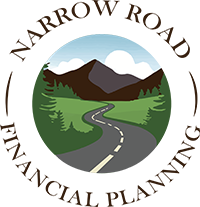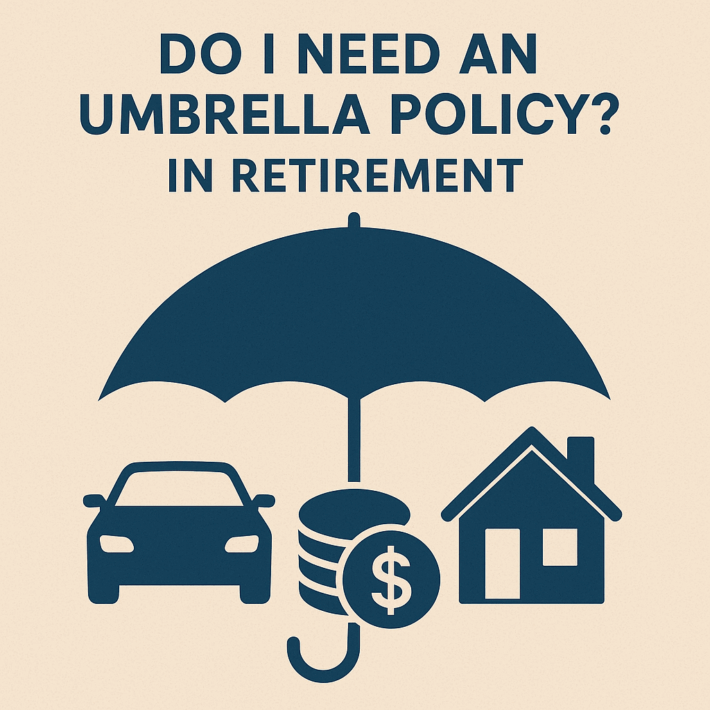Should You Keep That Rental?

A Financial Advisor’s Perspective on Rental Property Financial Planning
If you’re anything like our clients—you’ve probably had moments where real estate investments leave you scratching your head. From a pure numbers perspective, they often don’t look as great as traditional portfolios. But peel back a few layers, and there’s a lot more to the story.
This topic has been top-of-mind for us lately because of a client of ours in his mid-30s who owns a rental property he’s passionate about. As we modeled it in his financial plan, it was projecting significantly better for him to hold the property all the way into retirement, despite the monthly losses. The reason is all-too-obvious—there are advantages to real estate that financial planners don’t always account for.
Let’s walk through the pros and cons of owning rental real estate from a financial planning perspective.
The Real Advantages of Owning Rental Properties
1. Forced Savings That Build Equity
Many clients underestimate the value of simply making that mortgage payment. Even if a rental runs slightly negative month-to-month, every payment chips away at principal. That’s forced savings—and unlike saving into a 401(k), it’s hard to pause or skip. Whether rent covers the cost or not, equity grows with every payment.
2. Built-in Investment Discipline
Rental property owners aren’t refreshing Zillow every day like someone might check their investment portfolio. That psychological distance can be an advantage. You don’t panic-sell your house because of a bad headline in MarketWatch. With real estate, the long-term mindset tends to stick.
3. The Power of a Low Interest Rate & Leverage: Don’t Rush to Pay It Off
One of the most overlooked—but incredibly valuable—factors in rental property ownership is the interest rate on your mortgage.
If you were fortunate enough to lock in a sub-3% or sub-4% fixed interest rate a few years ago, you are sitting on one of the best forms of “cheap money” available. And in many cases, aggressively paying down that debt is not the best use of your cash.
Let’s walk through a real client example:
- They purchased a $200,000 rental property a couple of years ago.
- They put $40,000 and the home is now worth $210,000
- Their mortgage balance today is $158,000 at a 3% fixed rate.
- That gives them $52,000 in equity today.
Now let’s assume the property appreciates 5% in a year. That’s a $10,500 increase in property value—which is over a 20% return on your $52,000 in equity. And your cost of capital? Just 3% on the loan. That’s a powerful use of leverage.
Rather than sinking additional money into accelerating the mortgage payoff, many clients would benefit more from redirecting surplus cash flow to other investments—such as:
- Maxing out tax-advantaged accounts like IRAs or 401(k)s
- Funding a taxable brokerage account with diversified investments
- Building liquidity through an emergency fund or opportunity fund
This approach not only diversifies your financial strategy but also ensures you’re putting every dollar to work as efficiently as possible. After all, if your loan is costing you 3% and your investment accounts are averaging 10–11%, why rush to eliminate the debt? That’s arbitrage on top of your leverage on a stable asset.
4. Hands-On Wealth Creation (If You’re Handy)
Fix-and-hold rentals, where the owner handles repairs or renovations themselves, can be powerful side hustles. You’re not only investing money—you’re investing sweat equity. And unlike index funds, that extra effort can actually move the needle.
The Trade-Offs (And Why They Matter More Than You Think)
1. Negative Cash Flow Can Derail Your Plan
That same client? He’s losing about 1.5% to 1.7% monthly on the property once you factor in taxes, insurance, mortgage interest, and property management. And that shortfall is coming straight out of his pocket—while also trying to fund daycare, education savings, and his 401(k). Being “rental poor” is just as risky as being house poor.
2. It Can Threaten Liquidity and Flexibility
Real estate is illiquid. You can’t sell a bathroom to pay a medical bill. For clients with limited emergency funds or cash reserves, this becomes a serious concern. Every financial plan needs margin—room to adapt. A rental that bleeds cash can crowd out more essential planning priorities.
3. Retirees Often Lose the Leverage Advantage
In retirement, most clients have paid off their rentals. That means the benefit of leverage—those amplified returns—is gone. What’s left is a mildly performing asset that demands attention, management, and potentially headaches. Would an 8% return from a diversified portfolio, with full liquidity, be a better use of that equity? Often, yes.
4. It’s Not as Passive as You Think
Even with a property manager, issues still come up. Tenants. Maintenance. Turnovers. I tell my retired clients, if your dream is to travel, visit grandkids, or just simplify—then why sign up for more responsibility?
When It Does Make Sense to Keep a Rental in Retirement
There is one exception I consistently make: emotional or lifestyle value.
A vacation home you rent out part-time? A hunting cabin passed down through generations? That’s not just an investment—it’s a goal. When something brings joy or fulfills a dream, it doesn’t need to beat the S&P 500. It just needs to work within the bigger picture of your plan.
When I model those kinds of properties, I don’t treat them as financial assets—I treat them as lifestyle priorities. That changes how we evaluate the cash flow, risk, and return.
Final Thought: The Case for Annual Review
Real estate isn’t “set it and forget it.” For clients—especially younger ones—who want to keep their rentals, I strongly recommend we review those properties annually as part of the planning process.
We need to ask:
- Is it still cash flow positive?
- Can we improve property management expenses?
- Is the equity now better deployed elsewhere?
Real estate can be a great part of a financial plan—but only when it’s integrated with the plan, not isolated from it.
Summary: Real Estate Through the Advisor’s Lens
| Pros | Cons |
| Forced savings | Negative monthly cash flow |
| Encourages discipline | Illiquidity risk |
| Leverage amplifies returns | Not truly passive |
| Tangible and hands-on | Can detract from other goals |
| Lifestyle benefit (if applicable) | Time commitment in retirement |
Bottom line: I’m not anti-real estate. I’m just pro-context. If a rental fits your plan, doesn’t drain your cash flow, and aligns with your goals—awesome. If not, it’s worth reevaluating.
A rental property should never prevent you from achieving financial peace. Instead, it should support it.



